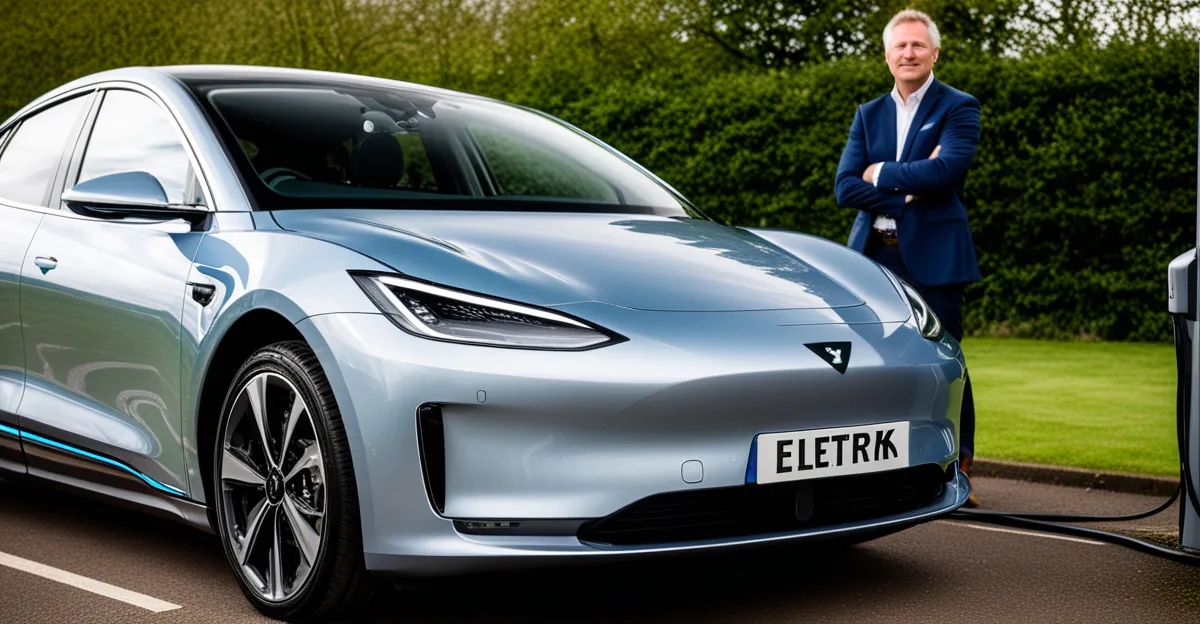Overview of Electric Vehicles in the UK
The transition from conventional vehicles to electric vehicles (EVs) in the UK marks a significant shift in the automobile industry. This change is not only pivotal for environmental reasons, but also reflects broader market growth trends. The UK, known for its pioneering spirit in the automotive sector, is adapting swiftly. The growth in EV adoption highlights the UK’s commitment to reducing carbon emissions and enhancing sustainability.
Currently, the UK EV market shows a vibrant landscape with increasing consumer interest. Several factors contribute to this trend, including heightened environmental awareness and advances in EV technology. As the industry evolves, the availability of diverse models is catering to a wide range of consumer preferences.
In the same genre : How Are Future UK Automotive Technologies Paving the Way for Sustainability?
Key statistics underline this growth. For instance, recent data reveals an uptick in the registration of electric vehicles year on year. This acceleration is bolstered by supportive government policies aiming for an EV-centric future. These policies are integral in shaping the UK’s automobile industry and fostering a robust market for electric vehicles.
With a foundation laid for continued expansion, the UK’s commitment to EVs ensures it remains at the forefront of automotive innovation. As these vehicles become a staple on UK roads, further market growth is anticipated. The interplay between technological advancements and evolving consumer demands continues to drive this trend.
Also to see : What role does AI play in UK automotive design innovations?
In the coming years, the trajectory of the UK EV market will likely influence a global shift towards sustainable transportation. This will not only transform the industry but also redefine mobility as society becomes increasingly conscious of its environmental impact.
Manufacturing Changes Due to Electric Vehicles
The advent of electric vehicles (EVs) has initiated profound shifts in manufacturing processes within the automotive industry. Unlike traditional vehicles, EVs demand specialized production techniques, primarily due to their unique components such as electric motors and advanced batteries. This change calls for factories to be equipped with state-of-the-art machinery to handle these parts, leading to a transformation in how vehicles are built.
Several key players have emerged in the EV manufacturing sector, each reshaping the industry landscape. Companies like Tesla have become synonymous with innovation, pushing the boundaries of what is possible in vehicle manufacturing. Meanwhile, legacy automakers such as Ford and BMW are investing heavily in retooling their production lines to accommodate EVs, signifying a widespread industry shift.
A critical aspect is the change in supply chain dynamics and sourcing of materials. EV production relies heavily on elements like lithium and cobalt, essential for battery manufacturing. This reliance has prompted manufacturers to establish secure and sustainable supply chains to ensure steady production flows. As these trends evolve, they underline the industry’s commitment to adapting to a future dominated by electric mobility.
Regulatory Changes Impacting Electric Vehicle Development
Government policies and regulatory changes have a profound impact on the development and adoption of electric vehicles (EVs) in the UK. A series of recent UK government policies have been implemented to support the transition to EVs. These include financial incentives, such as grants for EV buyers, and initiatives to expand the charging infrastructure. Such policies aim to make EVs more attractive to consumers while ensuring that the necessary infrastructure is in place to support widespread adoption.
In addition to local government initiatives, the UK EV market is also influenced by European Union regulations. These regulations cover various aspects, including emission standards and safety requirements, which manufacturers must comply with to sell vehicles in both the UK and wider European market. This dual influence ensures that EVs meet rigorous environmental and safety criteria, which helps boost consumer confidence.
Looking forward, future regulatory expectations for the automobile industry suggest continued tightening of emissions standards and possibly new rules regarding battery recycling and sustainable materials sourcing. Such regulations will likely drive further innovation in the industry, as manufacturers strive to meet new standards efficiently and effectively. These evolving policies underscore the industry’s commitment to a cleaner, more sustainable future.
Market Trends Influencing Electric Vehicle Adoption
As the UK witnesses a surge in electric vehicle (EV) adoption, understanding the undercurrents shaping this transformation is crucial. Consumer attitudes towards EVs are evolving significantly. An increasing segment of the population is recognising the long-term benefits of switching to electric, including lower running costs and an enhanced environmental profile. These perceptions are crucial for the sustained growth of the EV market.
Government incentives play a pivotal role in driving EV sales. Financial aids in the form of subsidies and tax reductions make EVs more financially accessible. The impact is palpable; statistics show an uptick in EV purchases where governmental support is strongest. This highlights the alignment between policy measures and market outcomes, paving the way for broader adoption.
A comparative view of sales trends offers deeper insight. While traditional vehicles still dominate overall numbers, EVs are catching up swiftly. The growth rate of EV sales surpasses that of conventional autos, a testament to shifting consumer preferences and a harbinger of a future dominated by greener alternatives. This ascendancy is also bolstered by advancements in EV technology, further appealing to tech-savvy consumers looking for performance-centric, sustainable driving solutions.
Technological Innovations Enhancing Electric Vehicles
Electric vehicles (EVs) are revolutionising the way we think about transportation through a combination of cutting-edge EV technology and forward-thinking design. Central to this evolution is the rapid advancement in battery technology, which has vastly improved vehicle range and efficiency. Modern EV batteries are enhancing driving range considerably, reducing range anxiety for consumers and boosting the appeal of electric cars.
Moreover, the integration of smart technologies in today’s EVs is shaping the driving experience by adding convenience, safety, and connectivity. For instance, autonomous driving features allow vehicles to navigate and operate with minimal human intervention, which not only improves safety but also adds a layer of ease for everyday commuting. These technologies are a testament to how innovative software solutions are blending with the automotive sector to create smarter, more efficient transportation.
Technological advancements extend beyond just the practical benefits, significantly enhancing EV performance and safety. These strides include improved drivetrain systems that offer better speed and handling, further endearing EVs to performance enthusiasts. Collectively, these innovations underscore the pivotal role of technology in making electric vehicles a viable and attractive option in the evolving automotive landscape.
Economic Impacts of Electric Vehicles on the UK
The rise of electric vehicles (EVs) is sparking significant economic effects within the UK’s automotive industry. As the market shifts from conventional vehicles, new economic opportunities emerge. With the expansion of EV infrastructure, there is a surge in demand for skilled workers in sectors such as battery manufacturing and infrastructure development. This shift bolsters job creation, as the industry seeks workers adept in new technologies.
Despite these opportunities, potential job displacement in traditional automotive sectors remains a concern. As EVs require fewer mechanical parts than internal combustion vehicles, there might be a reduced need for roles focused on engine production, thereby necessitating retraining for affected workers. However, this transition can also foster a skilled workforce better suited to the demands of future technologies.
Long-term economic forecasts highlight a positive trajectory for the UK’s automobile industry, with increased EV adoption. As consumers pivot towards sustainable, tech-driven transport options, the industry is poised for robust growth. This evolution not only aligns with sustainability goals but also positions the UK as a leader in the global automotive sector. As these changes unfold, balancing traditional automotive know-how with innovative EV advancements will be crucial for enduring economic health.
Environmental Implications of Electric Vehicle Adoption
Electric vehicles (EVs) play a crucial role in reducing the carbon footprint of the UK’s transportation sector, significantly lowering emissions compared to traditional vehicles. They produce zero exhaust emissions, contributing to improved air quality and supporting the country’s sustainability goals. Furthermore, when powered by renewable energy, their overall environmental impact diminishes considerably.
When assessing the carbon footprint, it’s evident that EVs outperform their internal combustion engine counterparts over their lifecycle. This advantage primarily arises from the cleaner operation and the increasing share of green energy in the UK’s electrical grid.
However, the environmental benefits of EVs come with challenges, particularly concerning battery production and disposal. Manufacturing EV batteries involves intensive resource consumption and sometimes environmentally harmful processes. Proper recycling and innovative approaches in battery chemistry are essential solutions, aiming to minimise adverse ecological impacts.
The UK’s strides in EV adoption offer a promising path toward a more sustainable future, illustrating a robust commitment to reducing transportation-related emissions. As technology progresses and recycling methods improve, the environmental benefits of adopting electric vehicles will likely grow, reinforcing their role in the journey toward more sustainable and responsible mobility.
Future Predictions for the UK Automobile Industry
The future of the UK automobile industry is set to be transformative, with electric vehicles (EVs) at the forefront. Experts predict a continued rise in EV popularity, driven by technological advancements and heightened consumer awareness of environmental impacts. These vehicles are expected to dominate new car sales within the next decade, showcasing the shift in consumer preferences towards greener alternatives.
As consumer preferences evolve, there is an anticipated demand for more diverse and affordable EV models. These consumers are increasingly looking for vehicles that offer not only sustainability but also superior performance and connectivity. The increase in tech-savvy buyers will likely push manufacturers to innovate further in areas such as battery technology and autonomous driving features.
However, the transition is not without challenges. The UK must address the expansion of its charging infrastructure to meet rising EV numbers. Infrastructure development will be critical in overcoming range anxiety and ensuring convenient access to charging stations across the country. Moreover, the industry will need to tackle supply chain issues, particularly regarding the sustainable sourcing and recycling of battery materials.
The automotive industry’s outlook is promising, with potential for substantial economic and environmental benefits. The alignment of government policies with industry goals to support clean transport innovations will play a crucial role. As the decade unfolds, the UK is poised to solidify its position as a leader in the global push towards sustainable automotive solutions, capitalizing on both opportunities and advancements in the EV sector.








